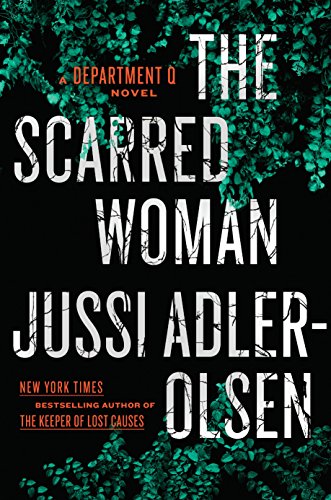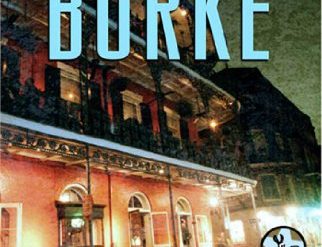
The Scarred Woman is the seventh novel in Jussi Adler-Olsen‘s series about Danish detectives holed up in the basement of Copenhagen’s police headquarters, ostensibly to work on cold cases. Like the six books that preceded it, it tells the story of how the small team in Department Q takes on several homicide cases simultaneously and discovers—lo and behold!—that they’re all connected.
In the process, all three of Detective Carl Mørck’s “assistants,” Asaad, Rose, and Gordon, manage to infuriate and astound him in new and sometimes highly creative ways. It’s just possible, we might guess, that all three of them are at least as smart as he is, if not more so.
Meanwhile, Mørck infuriates his own boss, and practically everyone else in the police force. He’s always in trouble for insubordination, shaming his superiors, defying orders, stealing someone else’s cases, or simply showing up all his colleagues with his (or perhaps his team’s) brilliance. But somehow he always manages to evade being fired.
The Scarred Woman merges an in-depth exploration of Rose’s mental illness with a tale of the team’s investigation into three homicide cases and a night club heist. We’ve known for some time that Rose is not well. Now, we learn just how seriously ill she really is.
The titles of the six previous novels in Adler-Olsen’s series all relate closely to the contents. But I can’t figure out who “the scarred woman” is. I’m also put off by the author’s exaggerated portrayal of so many of his characters. More than in the previous novels in the Department Q series, several of the key figures in the story come across as cartoonish. One, Rose’s father, is particularly difficult to believe. Apparently, Adler-Olsen was off his game when he wrote this one.
The Scarred Woman (Department Q #7) by Jussi Adler-Olsen ★★★☆☆
Oh, and one more thing: the author’s writing displays a bonehead error that any competent editor or translator (or, for that matter, the author himself) should have caught: again and again, his characters address each other by name. Obviously, Adler-Olsen wants to be sure the reader understands who’s speaking to whom—or perhaps simply to remind himself. But there are far better ways to achieve that; more attentive novelists have found ways. It was this unfortunate error, as much as anything else, that caused me to stop reading Cara Black’s Aimee Leduc detective series set in Paris. I find the practice extremely annoying.
Previously, I’ve reviewed all six of the earlier novels in this series, and all of them more favorably. Go to Jussi-Adler Olsen’s Department Q thrillers for links to my reviews of the whole series. You might also want to take a look at Top 10 mystery and thriller series.
And you can always find my most popular reviews, and the most recent ones, on the Home Page.




























I want to read all of them. It sounds like they are just what I am looking for in a
Good mystery book
I love to read book that will not let them go until you finish them down